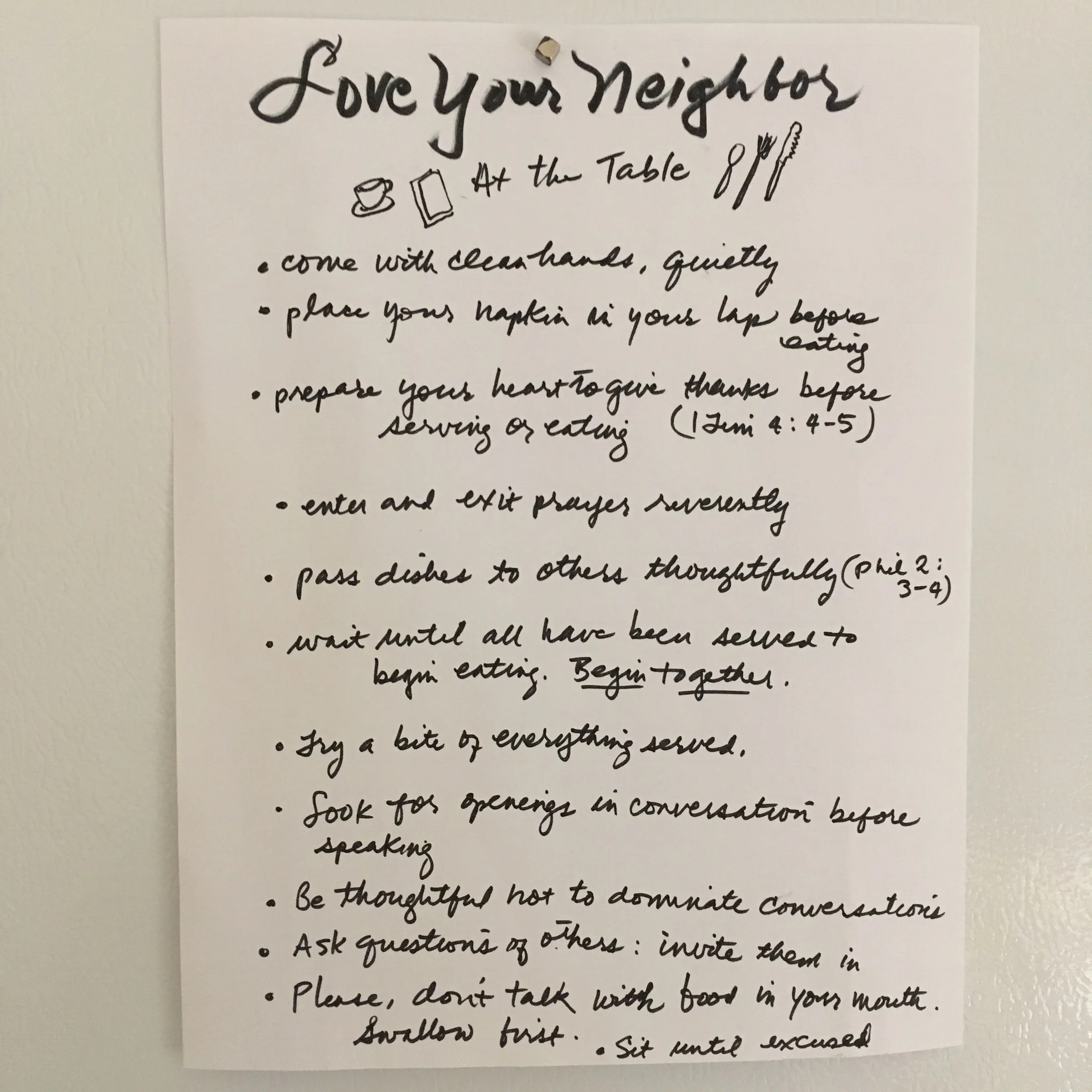(Updated from the Original published October 9, 2017)
I’m reminded by Robert Farrar Capon’s Bed and Board of the eternal potential hidden in the central piece of kitchen furniture. “The Table defines both the room it occupies and the household that gathers around it,” he says. Among the many things new and old that we can do around the table, old is often missing. And so, once again, I’m re-engaging in one of the most basic, yet essential components of any family’s life together: manners.
The manner in which you do something is your way or pattern of doing it. In one sense then, table manners are simply the way in which you eat. But they're more than that. Manners have long been considered the civil way to eat a meal. Since the Victorian age, whether you were rich or poor, enjoying a bowl of porridge or a side of beef, the goal of good manners was to avoid being rude or vulgar.
Capon summarizes manners thusly:
Things like sons helping their mother into her chair at dinner, like thanking her afterward, like asking to be excused from the table, like kissing people goodbye. Carry it a little father from the table. Take not interrupting, take the rule that one person talks at a time, take knocking on doors before bursting into a room, take “How do you do,” and “Please,” and “Thank you.” They are all very old-hat, but who will say they’re not becoming? (Bed and Board: Plain Talk about Marriage)
Beyond simply not embarrassing yourself or your family at table, manners are part of an effort to consider others’ needs above your own. Still, it’s tempting to talk about, require, and commence manners-training in a way that leaves kids thinking manners are only about making Mom happy. But Christian parents are called to more. Paul’s admonition in Philippians 2 is as much for frustrated Moms and Dads as it is for kids who slurp their soup and talk with food in their mouths.
Do nothing out of selfish ambition or vain conceit. Rather, in humility value others above yourselves, not looking to your own interests but each of you to the interests of the others (Philippians 2:4-5).
Realizing we’ve let things slide in the manners category, I wrote out some reminders this morning and posted them where we will see them on our way to the breakfast table. It's helpful for remembering the standard, and the loving motivation for requiring it. Still, the sign isn’t enough. We won’t persevere in what Capon describes as “the heroic labor of keeping it going” if we rely on our own strength.
And so I pray. Lord, refine our ways at table. May you help us to serve one another selflessly, listen attentively, ask questions thoughtfully, and grow relationally as we gather each day to enjoy, with gratitude, the bounty you have spread before us.


